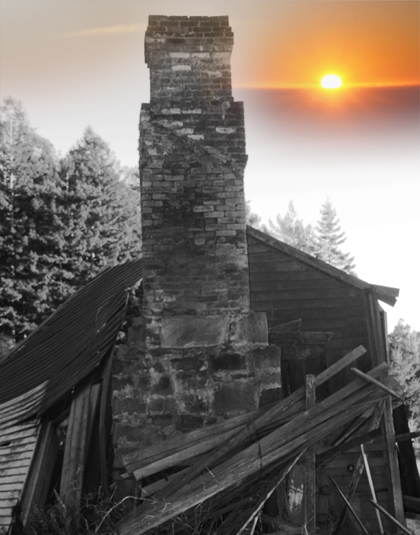The brickyard was a place where earthen building materials had been collected. Each one in turn was fired, stored and sometimes sold or otherwise distributed. The requirement was conformity and the bricks were measured for their usefulness. Each brick had to fit into its place easily without any special adjustments. This was needed so the roof would be level for its fitting. The roof cover was important to get right that no leaks from the rain could come into the buildings. The bricks that didn’t meet the measurement were easily traded away to desperate builders who couldn’t afford top of the line bricks. The unsalable bricks were simply broken up, smashed and pulverized to be left in a heap until something else could be done with them.
One day a man passing by the brickyard noticed the heaped up pile not being used. He went inside the brickyard to inquire if he could take it away for them. Eager to be rid of this garbage they even helped the man cart the earthen materials to His garden plot.
Once the brick builders were done discarding the pile in his garden, the man went about assessing the earthen material. Becoming excited he began separating clay from the man-made substances. This took time and patience but he knew it would be worth the effort if he was to build a good dwelling. When he was done sorting, he gathered the clay for his potter’s wheel. Scooping up by a handful he worked day and night to make his own stones, one by one. Now and again one of the stones would spin in a wrong manner. With patience he’d take that handful, reworking it once more until it was worthy of a place in his wall.
The man worked long hours, humming and laughing aloud. The brickyard workers would often bring more garbage heaps, happy to be rid of them. Each time the man would smile and thank them fervently for their generosity. For years this exchange went on. In a corner plot portion of his garden the man had added each stone as he made them from his own hands.
The brickyard workers never took notice of what he was building and the man never felt the need to point their eyes to see it, recognizing they were focused on their own work. He just enjoyed building the home he would live within. He purposed to leave the roof open, letting the rain come whenever. He reveled in its refreshing, dancing in the downpours washing over him. Raising his hands skyward he would sing and laugh while touching each of the stones he had crafted on his potter’s wheel.



